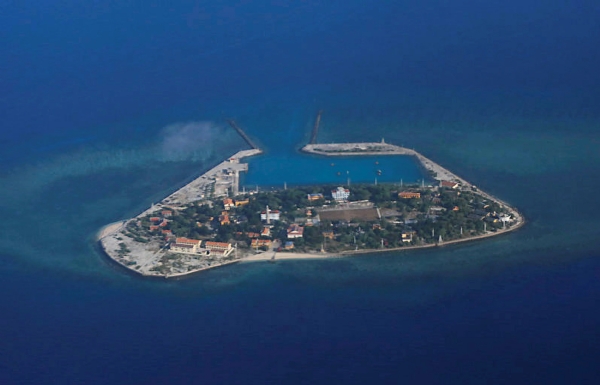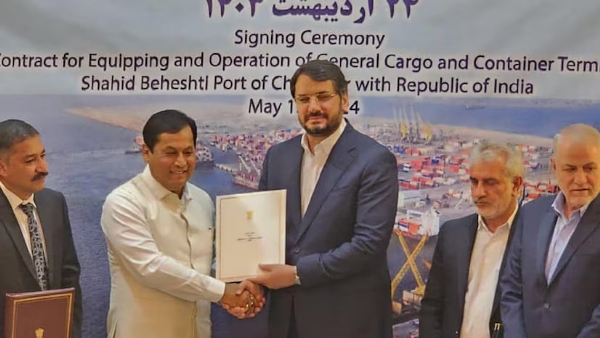Vietnam risks wider Spratlys dispute with more land reclamation: Chinese think tank

The Beijing-based Grandview Institution says Hanoi ramped up island expansion in the South China Sea from 2021 using large dredgers
Vietnam has occupied more Chinese islands and reefs, stationed more troops and built more facilities than any other coastal state to the waters, it says.
India can be a real alternative to China in pharmaceuticals
Dependence on imported ingredients and quality assurance are being addressed
India imports over 80% of its APIs and KSMs for some drugs and formulations, with purchases from China continuing to rise over the last two years.
India is looking to reduce this dependence through initiatives such its production-linked incentive program, which provides subsidies for companies investing in new manufacturing facilities. This effort has already led to increased domestic production of KSMs such as penicillin G and clavulanic acid.
However, it will likely take a few more years and perhaps some tweaks to the subsidy program for India to substantially grow its API and KSM production capacity and reduce import dependence on China to offer a true "de-risked" alternative for global supply chains.
Hong Kong’s history as espionage hotbed is back in spotlight after duo arrested in UK. The Post shares portraits of past spies
Hong Kong’s loose visa requirements and lack of espionage laws before 2024 allowed city to become ideal location for collecting and exchanging sensitive information
The Post looks at residents caught up in spying cases from ‘Hong Kong’s first spy’ to two local men arrested in UK over espionage allegations.
China sanctions five Taiwan political pundits, rolls out law to punish ‘separatists’
China said it would sanction five Taiwanese political commentators and roll out a law to punish “separatists”, moves aimed at piling pressure on incoming president Lai Ching-te just days before he takes office.
The pundits’ remarks “deceived some people on the island, incited hostility and confrontation between the two sides of the Taiwan Strait, and hurt the feelings of compatriots on both sides”, said Mr Chen Binhua, spokesman for the government department in Beijing that handles affairs related to Taiwan, at a press briefing on May 15.
The five are regulars on political talk shows on the island of 23 million people that Beijing has pledged to bring under its control someday, by force if necessary.
Countering Internal & External Security Challenges
Muzaffarabad unrest: 3 killed in PoK as strike enters 5th day, Govt allocates aid
Amid the unrest in Pakistan-Occupied Kashmir, at least three people were killed and six others injured in clashes with security forces in PoK on May 14. Paramilitary rangers opened fire on protesters during clashes after protests were held against high prices of wheat flour and inflated electricity bills.
Pakistan-occupied Kashmir has remained tense as the strike against high prices of wheat flour and inflated electricity bills and taxes entered its fifth day on Tuesday, forcing the Pakistan government to allocate 23 billion Pakistani rupees (PKR) for immediate release to the region to quell the simmering unrest.
On May 9 and May 10, around 70 activists were arrested by the police in a bid to prevent a long march - announced by the Jammu Kashmir Joint Awami Action Committee (JAAC) to press the government to comply with an agreement reached between the two in February this year - triggering serious clashes in Dadyal and a “shutter-down strike" call.
Economic Security- India’s Remittances: A Record-Breaking Achievement with Implications
In 2022, India surged past the milestone of $111 billion in inward remittances, firmly cementing its status as the world’s foremost recipient of such funds. This remarkable feat not only underscores the indispensable contribution of Indian migrant workers worldwide but also underscores the pivotal role remittances play in bolstering economies globally. The 2024 World Migration Report by the International Organisation for Migration identifies India, alongside Mexico, China, the Philippines, and France, as the top recipients of remittances. India’s consistent rise in this regard reflects the enduring bonds between expatriates and their country of origin.
The UN report underscores the persistent risks of financial exploitation, burdensome debts resulting from migration expenses, xenophobia, and workplace abuse that afflict migrant communities.
Particularly in the Gulf Cooperation Council states, where a substantial number of Indian migrants reside, violations of rights continue to persist. The advent of the Covid-19 pandemic has further exacerbated the vulnerabilities of migrant workers, particularly those in low-skilled labour and the informal sector. Job losses, wage theft, and a lack of social safety nets have plunged many into profound insecurity and debt. The phenomenon of reverse internal migration signals a significant shift in labour dynamics, impacting industries reliant on migrant workers.
Addressing issues such as labour exploitation, equitable access to social protection, and establishing secure and orderly migration pathways are imperative for fostering sustainable development and nurturing inclusive growth.
Pakistan's moves to isolate Afghanistan are backfiring
Estrangement is driving the Taliban to work with Iran and India at Chabahar port
Growing strains between Afghanistan and Pakistan due to militant attacks that Islamabad blames on cross-border insurgents are reshaping relations between them as well as their ties with other neighbours.
In particular, landlocked Afghanistan is increasingly looking to Iran as an alternative route for international trade, a dramatic development that could bring Kabul into greater alignment with other regional powers including India and Russia and counteract efforts to isolate both Tehran and Kabul.
Both Taliban-run Afghanistan and Iran are, of course, Islamic regimes, but they are hardly natural allies. The Taliban adhere to a brand of Sunni fundamentalism and are not known for always treating followers of other Muslim sects with equal respect, while the Shiiite clerics who hold the reins in Tehran are known to similarly dis favour other denominations.
Border disputes, particularly in relation to shared water resources, are another long-running source of tension. Last month, Taliban troops seized five Iranian border guards who were said to have crossed into Afghan territory. The presence of millions of Afghan refugees in Iran has sometimes been a flashpoint too.
But the tensions between Pakistan and Afghanistan are fueling cooperation between Kabul and Tehran centered on Chabahar, Iran's first deep-water port.
For Kabul, Chabahar is by far the most accessible alternative to Pakistani ports like Karachi and Gwadar.
For its own strategic concerns, India has also long supported Chabahar's development as a pathway to reducing Afghan reliance on Pakistan and potentially improving its own access to Central Asian markets.
India inks 10-year deal to operate Iran's Chabahar port
Investment and financing bring contract's value to $370m

India signed a 10-year contract with Iran on Monday to develop and operate the Iranian port of Chabahar, the Indian government said, strengthening relations with a strategic Middle Eastern nation.
India has been developing the port in Chabahar on Iran's south-eastern coast along the Gulf of Oman as a way to transport goods to Iran, Afghanistan and central Asian countries, bypassing the port of Karachi and Gwadar in its rival Pakistan.
U.S. sanctions on Iran, however, slowed the port's development.

No comments:
Post a Comment